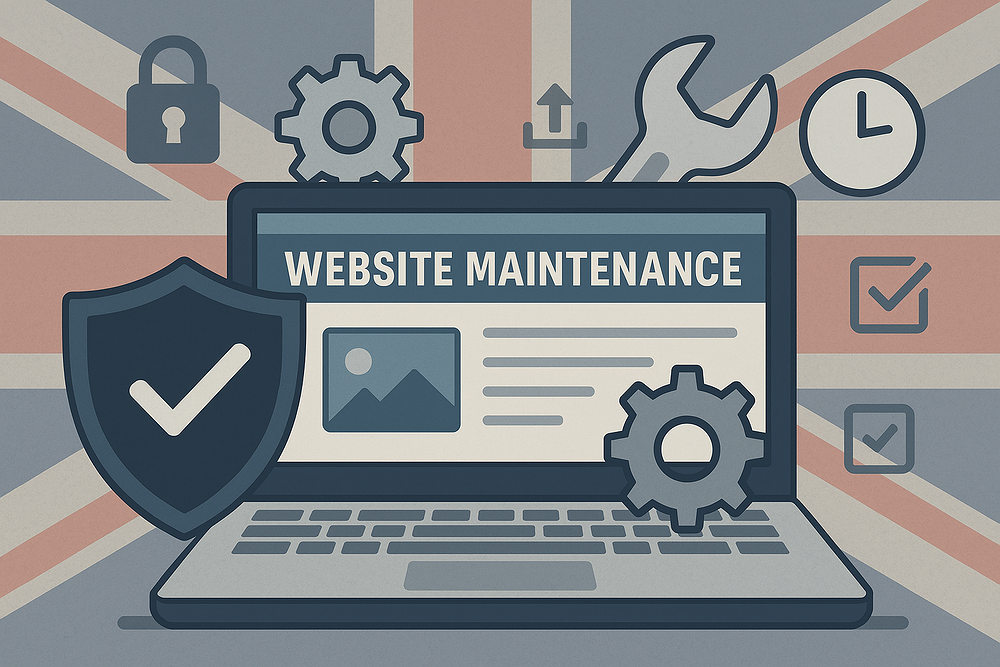SEO for Small Businesses: A Practical Guide for Boosting Visibility

In today's digital marketplace, having a website is only half the battle. If potential customers can't find you online, you might as well be invisible. That's where Search Engine Optimisation (SEO) comes in—a powerful tool that helps small businesses compete with larger organisations without breaking the bank.
What is SEO and Why Does It Matter?
SEO is the process of optimising your website to rank higher in search engine results when potential customers search for products or services you offer. When done correctly, SEO boosts your online visibility, driving more qualified traffic to your website.
For small businesses in the UK, effective SEO can:
- Level the playing field with larger competitors
- Generate leads and sales without continuous advertising spend
- Build credibility and trust with your target audience
- Provide valuable insights about your customers' needs
Getting Started: SEO Fundamentals for Small Businesses
1. Understand Your Audience
Before diving into technical aspects, you need to understand who your customers are and what they're searching for. Consider:
- What problems do your products or services solve?
- What terms (keywords) would potential customers use to find businesses like yours?
- What questions might they ask related to your industry?
Creating detailed customer personas can help you identify relevant search terms and topics that resonate with your audience.
2. Conduct Keyword Research
Keyword research is the foundation of effective SEO. It helps you identify the specific terms people use when searching for businesses like yours.
Start by listing the products and services you offer, then expand this list with related terms. Tools like Google's Keyword Planner, Ubersuggest, or Answer the Public can help identify additional keywords and their search volumes.
For small businesses, focusing on long-tail keywords (longer, more specific phrases) often yields better results than competing for highly competitive short terms. For example, a local bakery might find more success targeting "artisan sourdough bread in Manchester" rather than just "bakery."
3. Optimise Your Website Structure
Search engines favour websites that are well-organised and easy to navigate. Ensure your website:
- Has a logical hierarchy with clear categories
- Loads quickly (use Google's PageSpeed Insights to check)
- Is mobile-friendly (over 60% of searches now come from mobile devices)
- Uses descriptive, keyword-rich URLs (e.g., www.yoursite.co.uk/homemade-chocolate-cakes rather than www.yoursite.co.uk/product12345)
4. Create Compelling Content
Content is the heart of SEO. High-quality, relevant content not only helps you rank for targeted keywords but also establishes your expertise and builds trust with potential customers.
Consider creating:
- Informative blog posts addressing common questions in your industry
- Guides and tutorials related to your products or services
- Case studies showcasing successful projects
- FAQ pages addressing common customer concerns
Remember, content should be written for humans first, search engines second. Focus on providing genuine value rather than simply stuffing in keywords.
Local SEO: Essential for Small Businesses
If you serve customers in specific geographic areas, local SEO is crucial. Here's how to optimise for local searches:
1. Create and Optimise Your Google Business Profile
Your Google Business Profile (formerly Google My Business) is perhaps the most powerful local SEO tool available—and it's free. To optimise it:
- Verify your business and complete every section of your profile
- Add high-quality photos of your business, products, and team
- Collect and respond to customer reviews (positive and negative)
- Post updates, offers, and events regularly
2. Ensure NAP Consistency
NAP stands for Name, Address, and Phone number. Ensure this information is consistent across your website, Google Business Profile, social media accounts, and any online directories where your business is listed.
3. Target Local Keywords
Incorporate location-based keywords into your website content, meta descriptions, and page titles. For example, "affordable accountant in Leeds" or "emergency plumber North London."
4. Get Listed in Local Directories
Beyond Google, ensure your business is listed in relevant local directories like Yell, Thomson Local, and industry-specific platforms. Each accurate listing builds credibility with search engines.
Technical SEO: Behind-the-Scenes Optimisation
While content and keywords are visible elements of SEO, technical aspects work behind the scenes to improve your site's performance.
1. Optimise Page Titles and Meta Descriptions
Every page on your website should have a unique, descriptive title tag and meta description that includes relevant keywords. These elements appear in search results and influence click-through rates.
2. Implement Schema Markup
Schema markup is code added to your website to help search engines understand your content better. For small businesses, local business schema can be particularly helpful, highlighting information like opening hours, services offered, and price ranges.
3. Improve Site Speed
Site speed is a critical ranking factor and directly impacts user experience. Optimise images, minimise code, and consider using a content delivery network (CDN) to improve loading times.
4. Secure Your Website
Ensure your website uses HTTPS protocol (indicated by a padlock icon in the browser). Search engines prioritise secure websites, and customers are increasingly wary of sites without proper security.
Measuring SEO Success
SEO is not a one-time effort but an ongoing process. To track your progress:
- Set up Google Analytics to monitor traffic, user behaviour, and conversions
- Use Google Search Console to track how your site appears in search results
- Monitor keyword rankings for your target terms
- Track local ranking performance, especially in Google Maps
Remember, meaningful SEO results take time—typically three to six months before you see significant improvements.
Common SEO Pitfalls to Avoid
Even with the best intentions, small businesses often make SEO mistakes that can hinder their progress:
- Keyword stuffing: Overusing keywords makes content unreadable and can trigger penalties
- Ignoring mobile optimisation: Mobile-friendliness is essential for ranking well
- Neglecting analytics: Without tracking, you can't know what's working
- Expecting instant results: SEO is a marathon, not a sprint
- Duplicating content: Copied content (even from your own pages) can harm rankings
When to Consider Professional Help
While many aspects of SEO can be handled in-house, some situations warrant professional assistance:
- You've been penalised by Google and don't understand why
- You're in a highly competitive industry
- You need to recover from a significant drop in rankings
- You're redesigning your website and want to preserve existing SEO value
- You simply don't have the time to manage SEO alongside running your business
Final Thoughts
For small businesses in the UK, SEO represents one of the most cost-effective ways to grow your online presence and attract new customers. By focusing on understanding your audience, creating valuable content, optimising for local searches, and getting the technical details right, you can improve your visibility in search results and connect with more potential customers.
Remember that SEO is a long-term investment. The work you put in today may not show results immediately, but consistent effort will build a strong foundation for sustainable online growth.
Start small, focus on the fundamentals, and gradually expand your SEO efforts as you become more comfortable with the process. Your future customers are searching for you—make sure they can find you.
Talk to us about your next project
Our team of experts is ready to help bring your ideas to life with solutions tailored to your business.
Get in Touch

